- Home
- Jane Green
Falling Page 11
Falling Read online
Page 11
The landscaping is tired. Half-naked yews, old enough to be huge, but mostly bare, apart from the top, flank the front doorsteps. Creeping fir, a weeping maple, various untended plants line the front of the house, and there is cracked blacktop on the driveway.
The house is pretty, or at least could be pretty, with a little bit of TLC, thinks Emma. She instantly imagines the quick fixes that could transform the front. Gravel the driveway, for starters. Pull out all the landscaping—those terrible, old, bare yews—and replace it with something simple and clean. Boxwood balls perhaps, or a holly hedge.
Paint the front door a glossy gray; fill the window boxes; install large square iron planters on either side of the steps.
Lisa answers the doorbell as Emma looks around, making mental notes. She is Emma’s age, with dark hair pulled back in a ponytail, a striped T-shirt and white jeans, bare feet, and a toddler on her hip.
“So nice to meet you!” She invites Emma in, handing the baby to a young au pair as they pass the living room, bare but for a brand-new huge sofa and dark wood coffee table, a couple of sad chairs pushed back against the wall. Beyond is the library, containing a glass desk and bookshelves, empty but for a few novels on one shelf.
“You do have some furniture,” Emma comments, walking through the kitchen and noting the table and chairs—Restoration Hardware, she’s sure—and the slipcovered sofa in the sunroom.
“Yes. But none of it makes this place feel like home,” says Lisa. “I have no idea how to make a room the kind of place you want to spend time in. I thought getting the sofa and coffee table would make it inviting, but it still looks cold.”
“At least you chose a great sofa and coffee table,” says Emma, encouragingly. “There’s so much we can do to dress it up. And the glass desk in the library is perfect—it’s exactly what I would have chosen myself.”
Lisa’s face lights up. “Well, thank goodness I did something right. My husband’s birthday is over Labor Day weekend, and I’m planning to throw him a party. It’ll probably be outside in the yard, but I want everyone to see our house. We moved from the city a year ago and I’m totally embarrassed that the house still looks like this. I want it to be beautiful. And I have so little time to get it right before the party. Can we go see the rooms and I can tell you what I’m thinking?”
Emma follows Lisa into the living room and the library, then upstairs, hiding her nerves, hiding her fear that she will be found out as an amateur. Will Lisa be able to tell this is Emma’s first job? But as she walks through the house, her confidence returns; she can see exactly what it needs to be transformed into a wonderful home: sisal rugs, sofas, a couple of chairs and end tables. Abstract paintings in coastal shades of blue and green, pillows, lamps, and trays. Window treatments. Emma could create gorgeous rooms here just by shopping for about three days, and there is no doubt in her mind that the result would be beautiful.
Lisa isn’t asking Emma to spend hours in D & D Building gathering beautiful fabrics and wallpapers, putting them together on mood boards with sketches and photographs. She merely wants to give Emma a budget and send her off to local stores, where she will choose porcelain Buddhas, and crewel pillows, and mohair throws, and everything else she needs to create a finished, magazine-worthy house that Lisa can show off to her friends.
“You basically want me to shop for you,” says Emma at one point, as they flick through the binder she had put together, Lisa exclaiming over every single page.
“Yes!” says Lisa. “That’s exactly what I want. I want you to send me pictures just to check that I like what you’ve chosen, although honestly, I don’t even know what I like. That’s the problem—I get so overwhelmed. I want to show you a picture of a living room and I want you to make mine look just like that, but within our budget.”
“And that,” says Emma delightedly, “is exactly what I can do. I’ve brought a file of designs. Why don’t we look through and see if there are any rooms in there that you love? Or even parts of rooms that you love. Light fixtures or window treatments.”
“Let’s do it,” says Lisa, opening the file again and sighing with pleasure at nearly every picture Emma has included.
“I love this,” she says, over and over. “Oh my God, look at that fireplace!”
“We could do that pretty easily with your fireplace if you wanted,” says Emma. “I have a handyman who could stucco over the brick and make it look like sandstone to give you that very modern, clean look. It wouldn’t cost a lot and would give your living room a lovely contemporary feel.”
“I love that idea!” Lisa turns to her. “Emma, you are the perfect person. I love every single room you’ve picked out in here.”
Lisa’s phone interrupts her with a buzz, and as she excuses herself to take the call, Emma stands up and wanders around, looking out the windows, thinking about where she might buy the furnishings she has in mind, if she is lucky enough to get the job.
Then Lisa comes back into the room. “I’m so sorry. That was my husband. He has a late meeting tonight.” She rolls her eyes—clearly this is something that happens a lot. “We were supposed to be going to a farm dinner in Redding, but he has to cancel. I’ve got two tickets now to get rid of.” She sighs. “You wouldn’t be interested, would you? I’m never going to find anyone who can get a babysitter organized in time. It would be a shame to let the tickets go to waste.”
“Really? Why don’t you go with a friend?”
“To be honest, I’m kind of exhausted anyway,” Lisa says. “I’d be much happier if I knew the tickets were being used.”
“What exactly is a farm dinner? It sounds fascinating.”
“Oh, it’s a great concept. They do these a few times a year; each dinner features one of the hottest local chefs, and great wine, and they set up these long tables in the orchard. We went last year, not long after we moved here from the city, and it was amazing. The food was terrific, and we met some really nice people. I know we’ve only just met, but I’d love it if you took our place. Really. You should go.”
“Are you absolutely sure?”
“Yes! Go. Just give them our names when you get there.”
“Can I write you a check?”
“Don’t worry about it. This is the beginning of what I hope will be a great working relationship. Send me a proposal with pricing so I can sit down with my husband and get back to you as soon as possible? Because seriously, I’m ready to get going on this, like, tomorrow.”
“Done,” Emma says with a laugh. “And thank you so much for the farm dinner tickets. I’ll let you know how it is.”
Floating on air, Emma says good-bye and makes her way home.
• • •
“I can’t come,” says Sophie. “We’re going out for dinner with a couple from my Mommy and Me group and we’ve already canceled three times. I’d much rather go to a farm dinner with you, believe me, but I can’t cancel on them again. I’ve spent the whole day praying she’ll phone and say she’s not feeling well or her husband’s stuck in the office, but she just texted to say she can’t wait to see us, and they’ve booked a table at the Whelk.” Sophie sets down her mug of coffee and stretches out her legs as Jackson plays between her feet.
“Why are you going out for dinner with people you don’t like?”
“I don’t exactly not like them. I just don’t think they’re really our type. They’ve been pursuing us for months. Every time I see her, she says we have to get together with our husbands and go out for dinner, and I always smile and say, ‘Yes! We must!’ but I never follow up in the hope she’ll just forget about it. Eventually I just had to bite the bullet and issue an invitation. Then I kept canceling, thinking our plans would just fade away and she would forget about it, but she kept texting. Eventually I ran out of excuses, so we’re just going to get it out of the way.”
“So what am I going to do with these tickets? I’ll
have to give them to someone. Can you give them to someone? I don’t even know anyone in this town other than you.”
“How about sexy landlord?”
“Give Dominic the tickets?”
“No, silly. Ask him to go with you.” Sophie rolls her eyes. “You know you want to. He’ll be the perfect dinner companion. Go and knock on his door and ask him.”
Emma groans. “I can’t.”
“Why not?”
“I just . . . It’s overstepping.”
“What on earth are you talking about? He invited you to his barbecue, and it sounds like the two of you are hanging out a ton. This is your way of paying him back. Why don’t you just text him? Here. Give me your phone.”
Without waiting for Emma to say yes, Sophie grabs it from the coffee table and scrolls through her screen of contacts until she finds Dominic.
“Hey, Dom,” she types, looking up at Emma, who shakes her head vigorously in horror.
“He’s not Dom,” she says. “Dominic.”
“Okay. Sorry. ‘Hey, Dominic. Someone just gave me two tickets to a farm dinner in Redding tonight. Want to come?’”
“Don’t say that,” says Emma. “Say, ‘Is there any chance you want to come?’”
“Why? So you can be all English and reserved and pretend you don’t really want him to come? Too late. I pressed Send.”
Emma groans. “It’s too forward. Now I’m embarrassed.”
“Oh . . . oh . . .”
“What?”
“The dots!” Sophie shouts. “He’s responding already!”
“What does he say?”
“He says . . .” She pauses dramatically. “‘Yes! Sounds great!!!’” she reads from the screen. “Note the exclamation points,” she adds with a wink. “Then he finishes with, ‘I’ll pick you up. What time?’”
“Pick me up? That’s funny, since he lives next door. Tell him five.”
“Done. Now I have to help you figure out what to wear for your date.”
“It’s not a date,” grumbles Emma.
“Just because you extended the invitation doesn’t mean it’s not a date. And not only is it a date, it’s your first date, technically.”
Emma shakes her head. “Every time you call it a date it makes me freak out with nerves, and it sets the expectations so high I’m bound to have a horrible time. It’s not really a date, is it? Isn’t it just two new friends going out?”
Sophie stares at her friend. “I’m sorry, Emma. I didn’t mean to freak you out, but I do think this is a date. I know you’re nervous, but don’t be. We’ve already established he’s lovely. Now you just have to relax and be yourself. Oh, and look gorgeous.” She grins. “Can I help you pick out what to wear for dinner on the farm? I’m thinking floral dress, with a fabulous straw cowboy hat.”
Emma shakes her head with a laugh. “You’re incorrigible. Okay. I will do my best to relax and be myself. As for the floral dress, that I have. But where am I going to get a fabulous straw cowboy hat?”
“My closet. I’ll drop it off in about an hour. You’re going to look beautiful. Let’s blow Dominic away!”
• • •
The dress is indeed floral, and floaty, with a vintage feel that Emma loves. She feels feminine and beautiful in this dress, which she fell in love with years ago in a tiny store on Westbourne Grove, but has barely worn, because it has never felt quite her style.
Her hair is clipped back into a messy bun, tendrils hanging loose, with thin gold hoops in her ears and flat leather sandals on her feet. The tiniest bit of makeup, a woven raffia clutch, and the cowboy hat. She’d thought at first that the hat would be ridiculous, but even she has to admit it’s perfect when she catches sight of herself in the mirror.
The doorbell rings. Dominic doesn’t have to say anything for Emma to see that he approves. His eyes widen with a smile when he sees her, and he nods almost involuntarily.
“You look beautiful.” He says this as he places a hand on the small of her back, again, to guide her out the door, and again, just like the last time he did it, Emma feels her nerves disappear. A feeling of absolute safety washes over her as she lets him guide her to the truck.
“This is definitely the right truck for a farm dinner,” she says as they pull out of the driveway. “You’re going to feel right at home.”
“I love a farm,” says Dominic. “I worked on farms when I was a teenager. That was back when there were a ton of farms and farm stands around here. You wouldn’t even have recognized this town back then. It really was a small New England town when I was growing up. Everyone on Main Street knew you, people kept tabs on you everywhere, even at the grocery store. If you misbehaved, the storekeepers would call home and tell your mom.”
“I wish it were like that now,” says Emma. “I grew up in the country in England and it was much the same. I loved it, although of course back then I couldn’t wait to leave and move to London.”
“I would never want to live in the city,” says Dominic. “Even though I don’t always like how the town has changed, it’s my home.” He shrugs. “There isn’t anywhere else I could imagine living. My parents moved up to a retirement community outside of Trumbull, but I have to say, I can’t imagine ever leaving Westport, even though I never go to Main Street anymore.”
“What? No Vineyard Vines whale shorts for you?” jokes Emma.
“Right. Because I look like a Vineyard Vines whale shorts kind of guy.”
“You look very dapper tonight.” She looks at him, in a button-down white shirt and jeans.
“I made an effort for you.” He looks over at her and grins, and Emma smiles back, as her heart skips the tiniest of beats.
They turn up a dirt road and follow the hand-painted signs to Dinner on the Farm Parking through an open wooden gate, into a meadow filled with parked cars. They park and climb out, following another couple along a mown grass pathway through a wildflower meadow. A few minutes later they reach a large open field filled with people standing around sipping elderflower cocktails, helping themselves to hors d’oeuvres off trays borne by young, smiling women in linen aprons and chunky boots.
Dominic grabs two glasses off a tray, and they toast each other and take a sip.
“I had no idea this was a thing,” says Dominic, looking around with a smile. “I like it, though. It makes me feel comfortable, at home. Just like we were talking about on the way here. Reminds me of what the town was like when I was growing up.”
“Where do you think the actual dinner will be held?” Emma looks around but can’t see any tables.
“Through there, maybe? See the sign to the orchard?” A passing waitress overhears and stops with a smile.
“The dinner? It is in the orchard but we don’t let anyone over there until it’s time. There’s a whole theater involved in getting the tables ready, and we wait to bring everyone in all at once.”
“This is really nice,” says Dominic happily, helping himself to a small spoon of shrimp with dill pesto and quinoa. “And delicious,” he adds. His mouth is full as he speaks, and Emma laughs as she takes a spoon and tries the food herself.
It’s not long before everyone is invited into the orchard. The scene they find there is beautiful. Four long trestle tables stretch between the apple trees, globe lights strung between the branches, votives in mason jars winding down the center of each burlap-covered table, bamboo chairs lining each side.
The lights twinkle in the fading sunlight as servers stand to one side, greeting the guests with smiles. Everyone first glimpses the magical setting, then looks for seats. Emma glances around, trying to spot people she hopes, prays, may be nice, chatty, fun for the night.
Before she can think too long, Emma and Dominic sit with two couples their age, who introduce themselves as soon as they sit down. Emma already has them pegged—she worked with people just like
them in New York. The men, good-looking and clean cut, wear huge expensive watches on their wrists. She knows even without looking that they will each sport a Panerai, or a Rolex Daytona, and she flicks her eyes down to check, seeing that indeed one is a Panerai, the other an IWC. Nailed it, she thinks. Bankers.
The women are well groomed and friendly, but clearly not very interested in Emma. Out of politeness, she attempts to make small talk, asking them about their lives, their babies, where they worked before they had babies. Both of them are former bankers, undecided as to whether they will return to work. Emma knows in both cases they will not; she has worked with too many women like them, and she feels like she knows exactly how their lives will be laid out ahead of them. They have children and leave banking, thinking they will go back, but they will love being stay-at-home moms, even though a lot of the time they are bored. They will employ a nanny or au pair to take care of the boring parts—the endless trips to the children’s museum, the aquarium, the kiddie gym—and will spend their time getting back into shape and looking good enough to keep their husbands’ interest. The children will grow, will start kindergarten, and the wives will get involved with charities, will tell people they used to be bankers, conferring on themselves a status they gave up to be full-time mothers, because they still want to be defined as something more than merely a wife.
When their children reach high school their friends will slowly start working again, and they will realize it is no longer a status symbol to be a stay-at-home mother. They will look for something not too taxing to fill their time. Good God, they will realize. Whatever did they do with all that time? They will work in local stores, or start businesses, or help out at the school library. Many will become real estate agents, although most will struggle to find clients in a town overrun by middle-aged women going into the real estate business once their children have started high school.

 Saving Grace
Saving Grace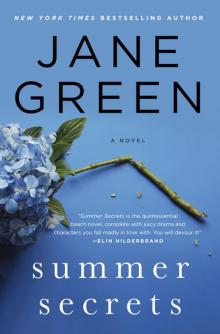 Summer Secrets
Summer Secrets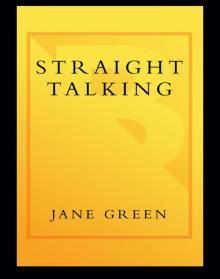 Straight Talking
Straight Talking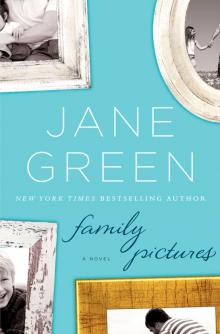 Family Pictures
Family Pictures The Holiday
The Holiday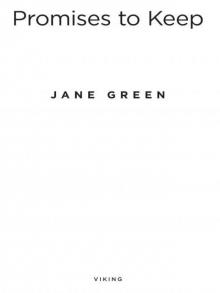 Promises to Keep
Promises to Keep Second Chance
Second Chance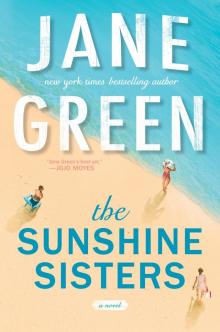 The Sunshine Sisters
The Sunshine Sisters Dune Road
Dune Road Bookends
Bookends The Beach House
The Beach House Mr. Maybe
Mr. Maybe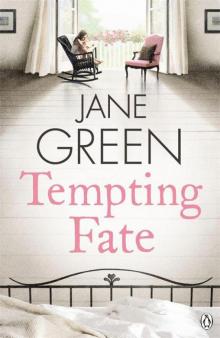 Tempting Fate
Tempting Fate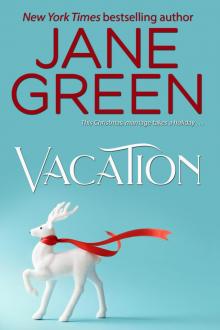 Vacation
Vacation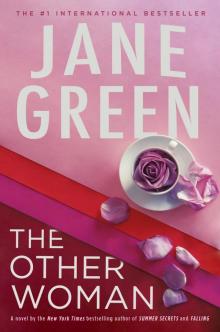 The Other Woman
The Other Woman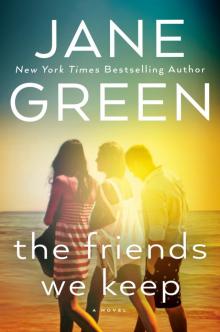 The Friends We Keep
The Friends We Keep To Have and to Hold
To Have and to Hold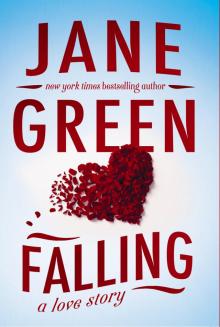 Falling
Falling Swapping Lives
Swapping Lives This Christmas
This Christmas Life Swap
Life Swap Cosmo's Sexiest Stories Ever
Cosmo's Sexiest Stories Ever